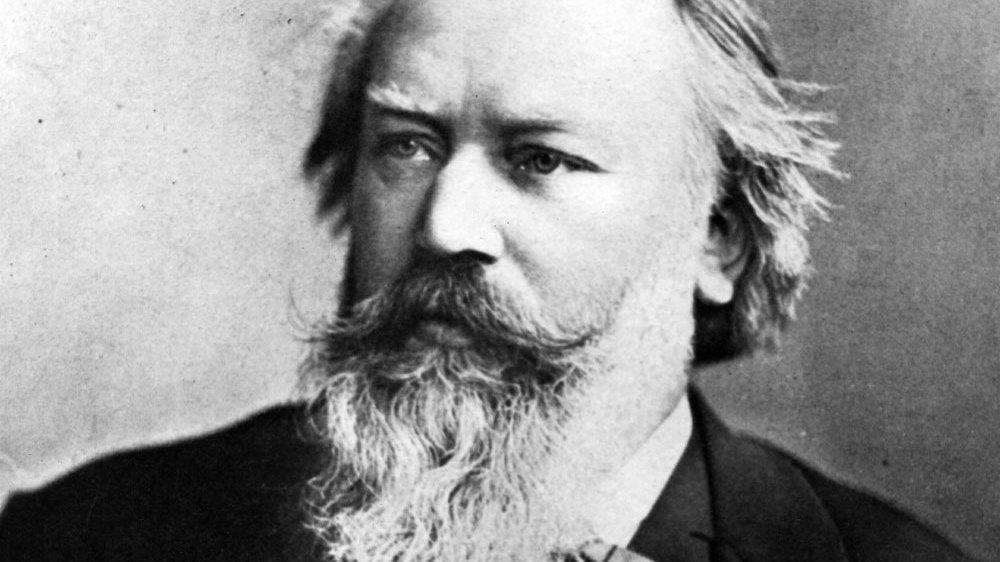Brahms’ Third Symphony: “Free But Happy”
Three bold chords, rising in an expansive wind choir, set in motion Brahms’ Symphony No. 3 in F Major. This powerful, attention-demanding proclamation flings open the door to a ferocious “con brio” first theme which seems to growl with intensity. Filled with wide, octave-exceeding leaps, it’s a theme which is always in motion, restlessly searching for a way forward, and veering continuously between major and minor. Rhythmically, it sets up our expectations, and then …







